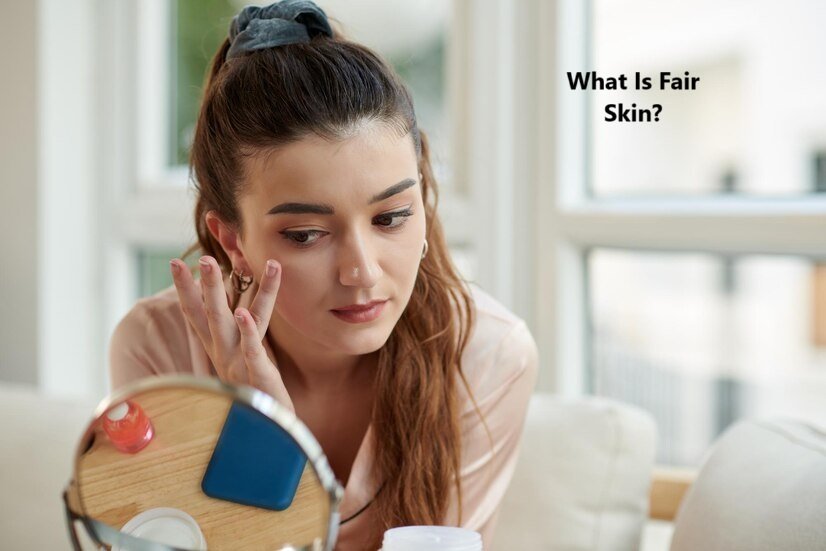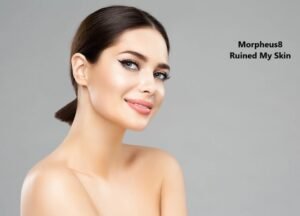
What Is Fair Skin
Fair skin is a term commonly used to describe a pale or light complexion. It has been celebrated, misunderstood, and even mythologized in various cultures throughout history. Whether you have fair skin yourself or are curious about the term, understanding its meaning, characteristics, and how to care for it is essential.
In this comprehensive guide, we’ll explore what fairs skin means, its unique attributes, the science behind skin tones, cultural significance, and practical tips for skincare and beauty routines tailored for fair-skinned individuals.
Understanding Fair Skin
Fair skin refers to a light or pale complexion that often appears more translucent than darker skin tones. It is typically associated with cool, warm, or neutral undertones and is most common among people of European, Northern Asian, and certain Middle Eastern ancestries.
Defining Features of Fair Skin
- Light Pigmentation: Often described as pale or creamy, fairs skin has a delicate tone that can appear rosy or golden.
- Pronounced Undertones: Fairs skin often reveals subtle undertones, such as cool pink or warm peach.
- Sun Sensitivity: Fair-skinned individuals are more prone to sunburn and need diligent sun protection.
The Science Behind Skin Tone
Skin tone is determined by melanin, a pigment produced by melanocytes in the skin.
- Melanin Levels: Fair skin has lower melanin levels, which makes it lighter and more sensitive to sunlight.
- Genetic Factors: Genes inherited from ancestors play a major role in determining skin tone.
- Environmental Influence: UV exposure, climate, and lifestyle can also affect the appearance of fairs skin.
Characteristics of Fair Skin
Fair skin comes with a unique set of attributes that distinguish it from other skin tones:
1. Sensitivity to Sunlight
Fair skin is highly susceptible to UV damage, leading to sunburn, freckles, and an increased risk of skin cancer.
2. Tendency to Flush
Fair skin often displays redness more prominently, whether from blushing, irritation, or environmental factors like cold weather.
3. Freckles and Spots
Many fair-skinned individuals develop freckles due to sun exposure, especially those with red or blonde hair.
4. Visible Veins
The translucency of fair skin can make veins more noticeable, particularly on the face and arms.
Cultural Perceptions of Fair Skin
The perception of fair skin has varied greatly across cultures and historical periods.
Historical Views
- Western Cultures: Fair skin was historically associated with nobility, as it implied a life of privilege away from the sun.
- Asian Cultures: In countries like India, Japan, and China, fairs skin has been considered a symbol of beauty and social status.
Modern Perspectives
While traditional associations with fair skin persist in some societies, modern beauty standards emphasize inclusivity, celebrating all skin tones.
Fair Skin Myths and Misconceptions
Myth 1: Fair Skin Is Always Flawless
Reality: Like any skin tone, fairs skin can have imperfections such as acne, dryness, or sensitivity.
Myth 2: Fair Skin Doesn’t Age
Reality: Fairs skin is often more prone to premature aging due to its sensitivity to environmental factors like UV rays.
Myth 3: Fairs Skin Is the Ideal
Reality: Beauty is subjective, and all skin tones have their unique appeal.
Challenges of Fair Skin
Fairs skin presents specific challenges, including:
- Sunburn: Requires high SPF and frequent reapplication of sunscreen.
- Dryness: Often lacks natural oils, leading to flaky patches.
- Redness and Irritation: More susceptible to environmental factors and allergic reactions.
- Hyperpigmentation: Can develop dark spots and uneven tone from sun exposure.
Skincare Tips for Fair Skin
Proper skincare is crucial to protect and enhance fairs skin natural beauty.
1. Sun Protection
- Use a broad-spectrum sunscreen with SPF 30 or higher daily.
- Wear protective clothing and a wide-brimmed hat when outdoors.
2. Gentle Cleansing
Opt for mild, fragrance-free cleansers to avoid irritation.
3. Hydration
Moisturize regularly with products suited to your skin type. Look for ingredients like hyaluronic acid and glycerin.
4. Target Redness
Use products with calming ingredients like aloe vera, chamomile, or niacinamide to reduce redness.
5. Regular Exfoliation
Exfoliate once or twice a week with gentle products to remove dead skin cells and maintain a glowing complexion.
Makeup Tips for Fair Skin
Fair skin is a versatile canvas for makeup, but it requires careful color selection to avoid looking washed out.
1. Foundation
- Choose a shade that matches your undertone (cool, warm, or neutral).
- Avoid orange-toned products, as they can look unnatural on fairs skin.
2. Blush
Soft pinks, peaches, and corals enhance the natural flush of fairs skin.
3. Eye Makeup
- Cool tones like taupe, lilac, and navy work beautifully.
- Avoid harsh black eyeliner; opt for brown or gray for a softer look.
4. Lip Colors
- Light pinks, rosy nudes, and soft reds complement fairs skin.
- For bold looks, try berry or plum shades.
Fashion and Color Choices for Fair Skin
Certain clothing colors can flatter fairs skin, while others may overpower it.
Best Colors for Fair Skin
- Pastels: Soft pinks, lavenders, and mint greens.
- Earthy Tones: Olive, camel, and beige.
- Brights: Cherry red and cobalt blue add contrast without overwhelming.
Colors to Avoid
- Neon shades can wash out fairs skin.
- Yellow or mustard tones may clash with lighter complexions.
Embracing and Celebrating Your Skin Tone
Fairs skin, like any skin tone, is unique and beautiful. Here’s how to embrace and celebrate it:
- Focus on Self-Care: Prioritize skincare routines that keep your skin healthy and radiant.
- Highlight Your Features: Experiment with makeup and fashion to find what makes you feel confident.
- Challenge Stereotypes: Beauty comes in all shades; celebrate diversity and inclusivity.
- Stay Educated: Learn about your skin’s needs to protect it and maintain its health.
Conclusion
Fair skin is a stunning and versatile complexion that requires understanding and care. By learning about its characteristics, challenges, and the best practices for skincare and makeup, individuals with fairs skin can confidently showcase their natural beauty.
Ultimately, beauty is not defined by skin tone but by how we embrace and care for ourselves. Fairs skin, like all skin tones, is a testament to the diversity and richness of human beauty. Celebrate your unique features and let your natural glow shine through!
Also, Read. Light Skin Women: Exploring Beauty, Identity, and Representation.




